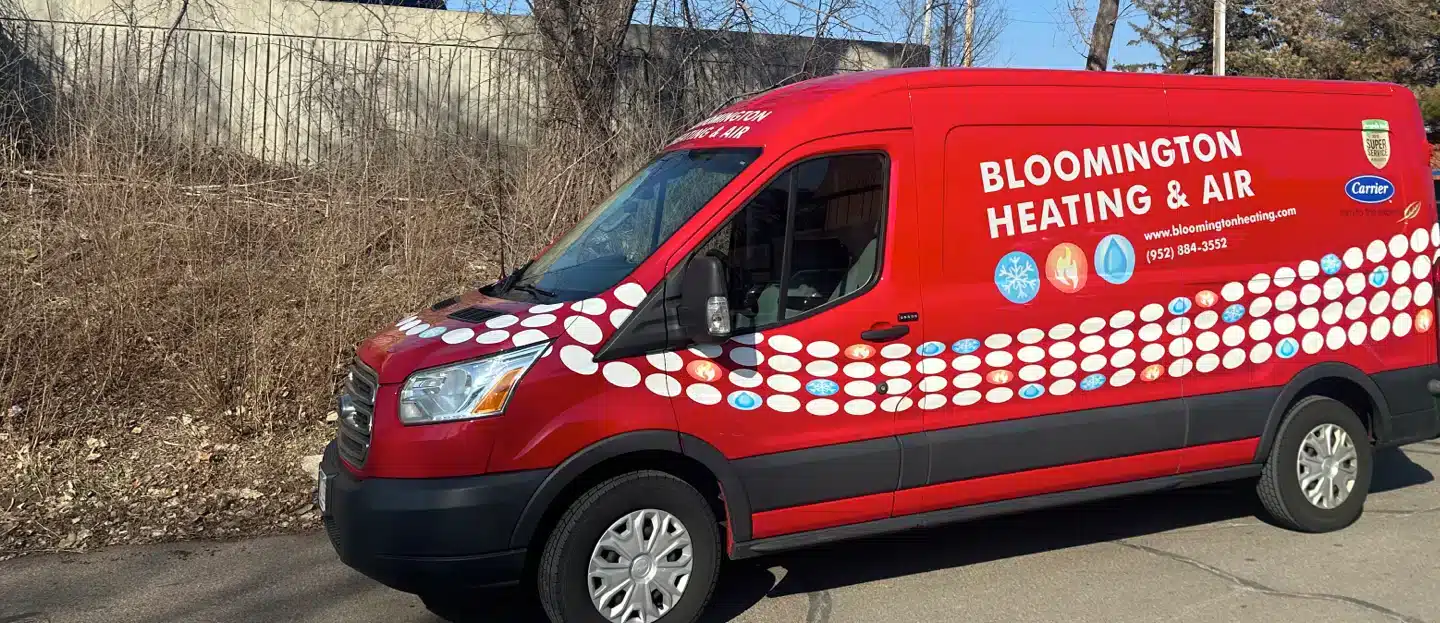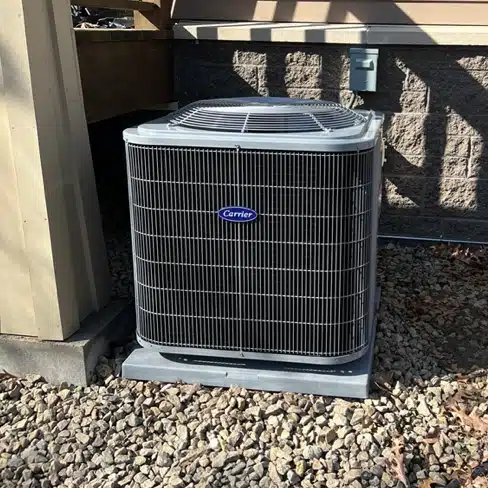
24/7 Emergency Phone Line
Family Owned & Operated
Licensed, Bonded & Insured

Stay Cool all Summer!
Air Conditioning Bloomington, MN
When you’re sweating it out in Bloomington, MN and need a hand with your air conditioning, don’t hesitate to reach out to our skilled team at Bloomington Heating & Air. We’ll hustle over to your place in no time and work with you to find the best solutions for your home and family. Our whole team is licensed and insured, not to mention highly trained, so they’ll solve your AC problem in no time. Give us a call now to get the ball rolling on your AC service!
Call (952) 884-3552Our Bloomington Air Conditioning Services
We’re your top team for anything related to your air conditioner in Bloomington. Whether you’re dealing with a repair, need a new installation, or just want to keep your AC running smoothly with regular maintenance, we’ve got you covered. Get in touch with us whenever you need help with any of the following:
- Emergency Air Conditioning Repair
- Air Conditioning Repair
- Air Conditioning Installation & Replacement
- Air Conditioning Maintenance
- Ductless AC Repair, Installation & Maintenance
- Heat Pump Repair, Installation & Maintenance
- Zoned AC Repair, Installation & Maintenance
15% off for Police and Fire Fighters
Cannot be combined with other offers. Call for details.
Our Air Conditioning Services
Bloomington Air Conditioning Repair
If your AC is acting up in Bloomington or the surrounding area, don’t feel anxious about it—just give us a shout. We’ll sort out any repairs needed so you can count on your air conditioner to keep you cool during those scorching summer days.
Don’t wait to reach out for Bloomington air conditioning repair! By getting in touch with us at the first sign of trouble, we can often find and repair issues before they escalate into major problems. We’re here to help you get your air conditioner up and running again as quickly as possible!
Bloomington Air Conditioning Installation & Replacement
Sometimes, replacing your old air conditioner with a shiny new one is the way to go. If our experts determine that this is the best move for you and your family, we’ll give you all the info you need to make an informed decision. We’ll help you select a new AC system, order it for you, and install it with precision so you can enjoy cool comfort again in no time.
Call (952) 884-3552Bloomington Air Conditioning Maintenance
Regular maintenance can help extend the life of your AC system. If you’d rather not replace it any sooner than necessary, give us a call to schedule some TLC for your air conditioner. We’ll take care of any repairs promptly so you can stay comfortable while saving your hard-earned cash for more enjoyable things than a new AC unit.
Book OnlineBloomington Heat Pumps
Heat pumps are a great option for efficient heating and cooling in Bloomington. Our team is well-versed in working on all types of heat pumps, providing repair, maintenance, and installation services. Before we leave, we’ll make sure your Bloomington heat pump is in tip-top shape and ready to keep you cozy year-round.
Zoned AC in Bloomington
If you have a zoned AC system, we can help! Just let us know that’s what you have when you call us, so we can send the right expert your way fast. We’ll help you get your system working again soon. We can also install, replace, and maintain zoned AC in Bloomington, MN.
Get Bloomington Air Conditioning Help Today
Don’t suffer in the heat any longer—reach out to us at Bloomington Heating & Air today for all your air conditioning needs in Bloomington, MN. We’ll be there in a flash, diagnose your issue, and get it fixed up pronto so you can kick back and relax at home again in no time. Our local, family-owned business is here to help you get comfortable again fast. Contact us now to get the ball rolling!
